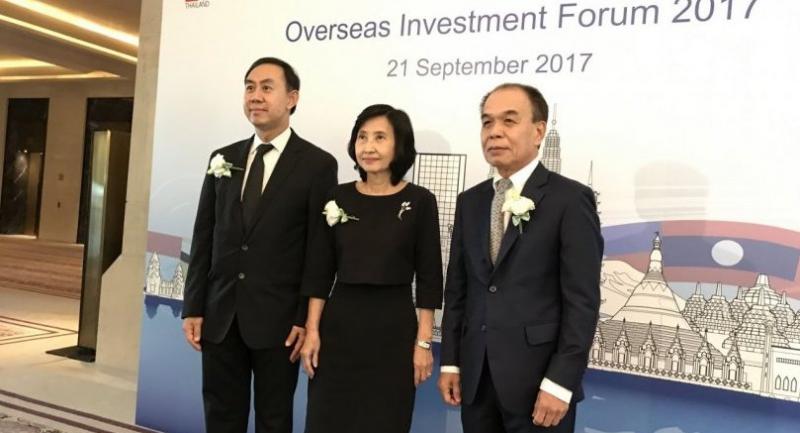Exim Thailand looks at joint loans with China

EXPORT-IMPORT Bank of Thailand (EXIM) is seeking a partnership with the Export-Import Bank of China to jointly provide loans for the high-speed rail project in Thailand as well as power projects in Cambodia, Laos, Myanmar and Vietnam(CLMV).
If the government accepted loans from the Exim bank, it could lower the cost of borrowing for the train project.
China may demand a higher interest rate but if Exim Thailand participated in the syndicate loan arrangement, the Thai government will pay less interest, said Pisit Serewiwattana, president of the bank
He said he would soon make a proposal to Finance Minister Apisak Tantivorawong on the issue.
Earlier, Transport Minister Arkhom Termpittayapaisith said that China had demanded collaterals from Thailand while the Thai government wanted clean loans to finance the Bt179 billion high-speed Bangkok-Nakorn Ratchasrima route.
Finance Ministry officials have also said the ministry might opt to source large portions of the loans from the domestic market in view of its high liquidity and lower cost of funding, adding that The government still believes that the borrowing cost from China bank remians too high when compared with the investment credit rating of Thai government bonds.
Pisit also revealed that Thai Exim bank was also holding talks with its counterprt in China on loans to finance power project in CLMV.
The Exim bank yesterday held a seminar titled “Exim Bank Overseas Investment Forum 2017” as part of a campaign aimed at encouraging Thai companies to invest more in CLMV and other Asean countries.
He said the bank currently provides political risk insurance to some Thai companies investing in CLMV for a combined investment total of about Bt 4 billion. Thai investors will be compensated if the host countries changed the investment rules or investment policies that would adversely affect the interest of Thai investors.
The bank has witnessed a rising trend of Thai investment in neighboring countries. Hirunya Suchinai, secretary general of the Thailand Board of Investment, said the BoI had trained 400 small and medium-sized enterprise (SMEs) and so far about 80-90 of them have invested in other Asean countries, mostly Myanmar and Vietnam.
There are high potential for investors in consumer products in those countries, she said.
Robert Perry, managing director of Political Risk & Structured Credit Leader Asia Pacific Marsh, said buying political risk insurance is important for Thai investors because things could change when the host countries face economic downturns. Governments may change investment policies or make it more difficult to remit money out of the countries.
Investors should learn lessons from Venezuela, Argentina and Brazil which in the past have changed policies during economic downturn and such change has created difficulties for investors to move money out, he said.
Meanwhile, Chanin Vongkusolkit, chairman of Banpu, a leading power generation company said he would advise Thai investor to invest in Indonesia due to its large domestic market and rising middle class.





